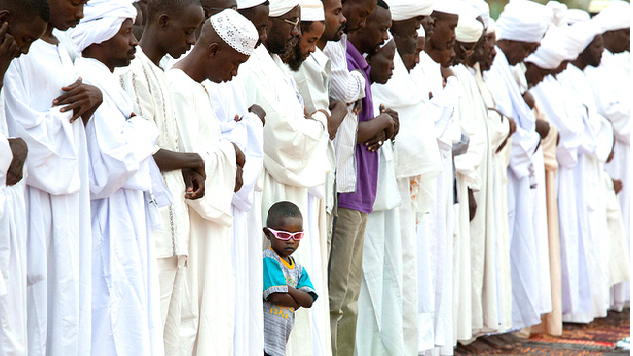By: Usamah Ali Abdul Majid, West Java Aqsa Working Group (AWG) Activist
A man has been praying at night for a month. But not doing it.on the 31st day. Can he be said to be persistent?
Yes. Why? Because the next day, he continued to pray at night.
There are groups of people who do not go along the valleys and mountains to fight in the way of Allah. But they are still given the same reward as those who go down the valleys and mountains for jihad. Because of what? Because they already have the intention but then udzur sick.
Also Read: Verses of the Universe in Gaza: The Unyielding Light of Faith
This shows that if we are living, healthy, and free of time, then istiqamah in goodness. Because in the future if we have syar’i udzur at any time, we will still get the reward for istiqamah while living, healthy, and free time.
In this regard, Shufyan Ats-Tsauri once said, “If you already have the intention to do good, then do it. Because there is Satan standing between you with that intention (although only Allah knows the intention).
Once the importance of istiqamah, it is a condition of perfect worship accompanied by good quality of worship. Keeping worship and struggle can also bring happiness in life, shifting various bad things. Happiness is in the form of peace of mind.
We can take lessons, when there was a friend named Abdullah bin Ummi Maktum. Because of his blindness and poverty, he was often reviled and humiliated by the people of Mecca.
Also Read: Prophet Sulaiman Alaihi Salam, the Greatest Muslim King of All Time
However, this did not dampen the spirit of worship. He still walks from his house to the mosque at every prayer time, to pray in congregation even though it is a long distance.
One day, Abdullah came to the Prophet to ask for an excuse to pray at home because of his blindness and the distance between his house and the mosque. The Prophet then asked, “Did you hear the call to prayer?”. Abdullah replied, “Yes, O Messenger of Allah”. Then the Messenger of Allah said, “then there is no excuse for you.”
And that’s also how to practice istiqamah Abdullah bin Ummi Maktum in performing congregational prayers at the mosque.
About the importance of istiqamah mentioned in the hadith:
Also Read: Imaam Yakhsyallah Mansur: Surah At-Tin Indicates the Command to Liberate Al-Aqsa
عَنْ أَبِيْ عَمْرٍو، وَقِيْلَ، أَبِيْ عَمْرَةَ سُفْيَانَ بْنِ عَبْدِ اللهِ رَضِيَ اللهُ عَنْهُ قَالَ: قُلْتُ يَارَسُوْلَ اللهِ قُلْ لِيْ فِي الإِسْلامِ قَوْلاً لاَ أَسْأَلُ عَنْهُ أَحَدَاً غَيْرَكَ؟ قَالَ: “قُلْ آمَنْتُ باللهِ ثُمَّ استَقِمْ” رَوَاهُ مُسْلِمٌ
From Abu ‘Amr – some also mention Abu ‘Amrah – Sufyan bin ‘Abdillah radhiyallahu ‘anhu, he said, I said: “O Messenger of Allah, tell me a saying in Islam that I do not need to ask anyone but you.” The Prophet said, “Say: I believe in Allah, then persist.” (HR Muslim).
In the Quran, Allah also emphasizes the importance of istiqamah, as in His words:
إِنَّ ٱلَّذِينَ قَالُواْ رَبُّنَا ٱللَّهُ ثُمَّ ٱسۡتَقَٰمُواْ فَلَا خَوۡفٌ عَلَيۡهِمۡ وَلَا هُمۡ يَحۡزَنُونَ
Also Read: Imaam Yakhsyallah: Nurture Love for the Prophet, One Will Be with Whom One Loves
Meaning: “Indeed those who say, ‘Our Lord is Allah,’ then they remain istiqamah, there is no worry for them, nor (also) grieve.” (Surat al-Ahqaf/46 13).
In another verse it is stated:
اِنَّ الَّذِيْنَ قَالُوْا رَبُّنَا اللّٰهُ ثُمَّ اسْتَقَامُوْا تَتَنَزَّلُ عَلَيْهِمُ الْمَلٰۤىِٕكَةُ اَلَّا تَخَافُوْا وَلَا تَحْزَنُوْا وَاَبْشِرُوْا بِالْجَنَّةِ الَّتِيْ كُنْتُمْ تُوْعَدُوْنَ
Meaning: “Indeed those who say, “Our Lord is Allah” then they strengthen their stance (istiqamah), then the angels will descend to them (saying), “Do not be afraid and do not be sad; and rejoice with (get) the paradise that has been promised to you.” (Surah Fushshilat/41: 30).
Also Read: Friday Sermon: Emulating the Firmness of the Prophet in Struggle
Therefore, let us be istiqamah with all our energy, soul and body in various forms of worship and struggle. Especially in the struggle for the liberation of Al-Aqsa. Because the struggle for the liberation of Al-Aqsa requires a lot of time, wealth and all the potential that is also not small.
It all requires istiqamah attitude. (T/RE1)
Mi’raj News Agency (MINA)
Also Read: Imaam Yakhsyallah: Muslims Unity as Key to Victory of Islam



































 Mina Indonesia
Mina Indonesia Mina Arabic
Mina Arabic